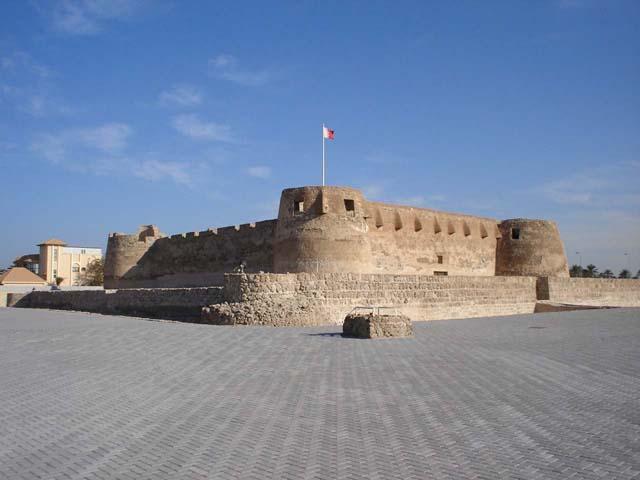Difference between revisions of "Adopting from Bahrain"
| Line 4: | Line 4: | ||
{{#eimage:http://upload.wikimedia.org/wikipedia/commons/1/13/AradFort.jpg|410x579px|thumb|'''Arad Fort, [[Bahrain]].'''<BR/>Source: Wikipedia.org.}} | {{#eimage:http://upload.wikimedia.org/wikipedia/commons/1/13/AradFort.jpg|410x579px|thumb|'''Arad Fort, [[Bahrain]].'''<BR/>Source: Wikipedia.org.}} | ||
| + | |||
'''Notice: As of July 14, 2014, all individuals and agencies facilitating [[international]] adoptions must be in compliance with the Intercountry [[Universal Accreditation Act]].''' | '''Notice: As of July 14, 2014, all individuals and agencies facilitating [[international]] adoptions must be in compliance with the Intercountry [[Universal Accreditation Act]].''' | ||
| + | |||
=About Bahrain= | =About Bahrain= | ||
In 1783, the Sunni Al-Khalifa family took power in [[Bahrain]]. In order to secure these holdings, it entered into a series of treaties with the UK during the 19th century that made [[Bahrain]] a British protectorate. To learn more, read [[About Bahrain]]. | In 1783, the Sunni Al-Khalifa family took power in [[Bahrain]]. In order to secure these holdings, it entered into a series of treaties with the UK during the 19th century that made [[Bahrain]] a British protectorate. To learn more, read [[About Bahrain]]. | ||
| + | |||
=Hague Convention Information= | =Hague Convention Information= | ||
| Line 15: | Line 18: | ||
[[Bahrain]] is not party to the Hague Convention on Protection of Children and Co-operation in Respect of Intercountry [[Adoption]] ([http://adoption.state.gov/hague_convention/overview.php Hague Adoption Convention]). Therefore, when the Hague [[Adoption]] Convention entered into force for the United States on April 1, 2008, intercountry [[adoption]] processing for [[Bahrain]] did not change. To learn more, read about [[Bahrain and the Hague Convention]]. | [[Bahrain]] is not party to the Hague Convention on Protection of Children and Co-operation in Respect of Intercountry [[Adoption]] ([http://adoption.state.gov/hague_convention/overview.php Hague Adoption Convention]). Therefore, when the Hague [[Adoption]] Convention entered into force for the United States on April 1, 2008, intercountry [[adoption]] processing for [[Bahrain]] did not change. To learn more, read about [[Bahrain and the Hague Convention]]. | ||
| − | |||
| − | |||
| − | |||
| − | |||
| − | |||
| − | |||
| − | |||
| − | |||
| − | |||
| − | |||
| − | |||
| − | |||
| − | |||
| − | |||
| − | |||
==SOURCE== | ==SOURCE== | ||
Revision as of 00:13, 26 February 2015
Notice: As of July 14, 2014, all individuals and agencies facilitating international adoptions must be in compliance with the Intercountry Universal Accreditation Act.
About Bahrain
In 1783, the Sunni Al-Khalifa family took power in Bahrain. In order to secure these holdings, it entered into a series of treaties with the UK during the 19th century that made Bahrain a British protectorate. To learn more, read About Bahrain.
Hague Convention Information
Bahrain is not party to the Hague Convention on Protection of Children and Co-operation in Respect of Intercountry Adoption (Hague Adoption Convention). Therefore, when the Hague Adoption Convention entered into force for the United States on April 1, 2008, intercountry adoption processing for Bahrain did not change. To learn more, read about Bahrain and the Hague Convention.
SOURCE
Intercountry Adoption, Bureau of Consular Affairs. U.S. Department of State Country Information[1]


